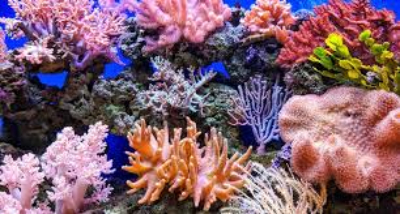The Union Environment Ministry has listed six conditions for Brihanmumbai Municipal Corporation (BMC) to comply with while giving it the final go-ahead for translocation (relocation) of two endangered coral patches along the coastal road alignment from the Mumbai coast.
The BMC would be translocating 18 colonies of corals which were in danger due to the coastal road project at Haji Ali and Worli. The conditions include that the translocation must be carried out in presence of the Forest Department Officials, and an expert from the Wildlife Institute of India, Dehradun, or any marine expert from the National Institute of Oceanography.
However, the civic body would have to ensure that the corals survive and grow at the new site, as per the instructions of the Principal Chief Conservator of Forest. The department has also warned that in case any mishappening occurs during the translocation process that could endanger the corals, the government could revoke its permission.
The BMC would have to ensure that the corals receive adequate protection during the translocation process and that it is followed up with continuous monitoring at the new site to ensure that they are surviving and growing. The civic body would also have to submit to the Centre and the state government a completion report.
The translocation process would need to be completed by December 31 this year (It has started from October 29.) Mumbai’s civic body oversees the execution of a 10.58 km long coastal road which stretches from the Worli end of the Bandra-Worli Sea-link to the Princess Street Flyover. The report stated that the entire project is estimated to cost Rs 12,700 crore.
Corals are protected marine species sporadically spread across rocky intertidal regions along the Mumbai coast. They have the same protection as the tiger or elephant under the Wildlife Protection Act, 1972. The plan was put up after prodding from courts as corals are protected under Schedule 1 of the Wildlife Protection Act.
Small coral colonies scattered across Haji Ali-Worli shoreline are unlikely to survive translocation, said a marine biologist, Vardhan Patankar who has specialized in coral research. The relocation of corals is difficult and has not been very successful in India. Vardhan Patankar has worked on coral projects in the Andamans, Lakshadweep, Karnataka, Goa, and Gujarat. He further added that some types of corals found on the city’s shoreline are also difficult to relocate. He also said that transplanted corals are more susceptible to storm surges and bleaching from warming ocean waters.
Environmentalist, Stalin D, Director of an NGO, Vanashakti, described the uprooting corals and relocating them as intricate operations like open-heart surgery. He added, “Corals are delicate ecosystems that are highly sensitive to even small changes. Instead of conserving the remaining fragments of this biodiversity, this so-called development project is decimating it.”
Many citizen groups have taken up this matter over social media to register their protest after PCCF had given the green signal. A nationwide campaign was started on Twitter using hashtags ‘Corals Bachao’ and ‘No Coastal Road’.
Another environmentalist, Tanmay Shinde tweeted his protest. His statement was: this initiative by the MOEFCC is a disaster and nothing less than an Ecocide as corals are a very crucial part of the marine ecosystem and according to experts corals are unlikely to survive the shift. The reclamation of the sea itself is hazardous in many ways and over 36 marine species are threatened due to the coastal road project. They should rather look for other sustainable alternatives.
The author is a student member of Amity Centre of Happiness





